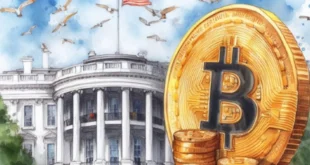Ireland’s economic fundamentals remain strong, according to Finance Minister Paschal Donohoe, who addressed mounting concerns over potential U.S. tariffs that could hit the European Union as early as August. While the minister expressed confidence in the country’s resilience, he cautioned that proposed trade penalties from the U.S. could pose serious risks to job creation and overall growth.
Tariff Threat Looms Over Transatlantic Trade
The warning comes in the wake of U.S. President Donald Trump’s threat to impose a 30% tariff on European imports, set to take effect on August 1. Trump, citing long-standing trade imbalances, stated that the European Union had been “brutal” in past trade dealings but was now showing willingness to renegotiate terms.
“The European Union has been brutal, and now they’re being very nice,” Trump remarked. “They want to make a deal, and it’ll be a lot different than the deal that we’ve had for years.”
EU Trade Commissioner Maroš Šefčovič is expected in Washington soon to lead discussions aimed at defusing tensions and potentially avoiding the sweeping tariff measures.
Ireland’s Position: Stability Amid Global Uncertainty
In an interview with RTÉ’s Morning Ireland, Minister Donohoe acknowledged the seriousness of the situation, noting that while Ireland’s economic position is currently sound, the ripple effects of a transatlantic trade clash could be substantial.
“We are facing challenges,” he said. “But with the decisions we’ve taken, the resilience of our people, and further careful choices, I am confident we can navigate through this period.”
Donohoe emphasized that scenarios are being modeled for both 10% and 30% tariffs. However, he noted that the impact can’t simply be extrapolated from one rate to another, as higher tariffs introduce far more complex economic dynamics.
“The impact on employment and growth would undoubtedly be more severe with 30% tariffs,” he warned, adding that Ireland must realistically prepare for this possibility.
Domestic Growth to Be Tapered as Inflation Falls
As part of efforts to maintain economic balance, Donohoe indicated that public spending growth would need to be moderated. Spending had risen by 8–9% during a period of high inflation, but now, with inflation trending closer to 2%, a slowdown in spending expansion is warranted.
“The cost of living is still tough for many households,” he admitted, “but price increases have eased, and we must adjust fiscal policy accordingly.”
Despite global uncertainty, Donohoe pointed to encouraging signs domestically. Investment agency IDA Ireland reported a robust performance in the first half of the year, with solid growth in both job creation and foreign direct investment.
However, he acknowledged that discussions with business leaders suggest a shift in mood. “Many employers are holding off on decisions. They’re not pulling out—but they are pausing.”
In his view, creating an atmosphere of economic and policy certainty is key to counteracting broader geopolitical uncertainty. “Confidence in Ireland’s stability helps mitigate the caution that investors are currently feeling,” he said.
Employment Outlook Remains Strong—For Now
The Department of Finance’s current forecasts, which do not account for a 30% tariff scenario, still project strong employment growth. However, Donohoe admitted that job creation is expected to slow in the event of further trade disruption.
“We’re still seeing job numbers rise,” he explained. “Just not at the same pace.”
The minister pointed to continued negotiations by senior Irish officials, including Taoiseach Simon Harris and Tánaiste Micheál Martin, as essential to finding a diplomatic resolution to the brewing trade standoff.
“In addition to diplomacy, Ireland must keep investing in competitiveness,” Donohoe added. “That’s how we maintain momentum in the face of external shocks.”
Global Trade Tensions Escalate
Meanwhile, President Trump continues to push for better terms with key trade partners, leveraging the looming August 1 tariff deadline as a bargaining tool. Discussions are also ongoing with Canada, where similar concerns have arisen.
Trump signaled that it was still “too soon to say” whether a deal with Canada could be struck, echoing the sentiment of Canadian Prime Minister Mark Carney, who noted that an agreement acceptable to Canadian workers had yet to emerge.
In a broader comment, Trump also hinted that a general 10–15% tariff on smaller trading partners might be in the works, further stoking fears of an escalating trade war.
 The Daily Star Ireland
The Daily Star Ireland

